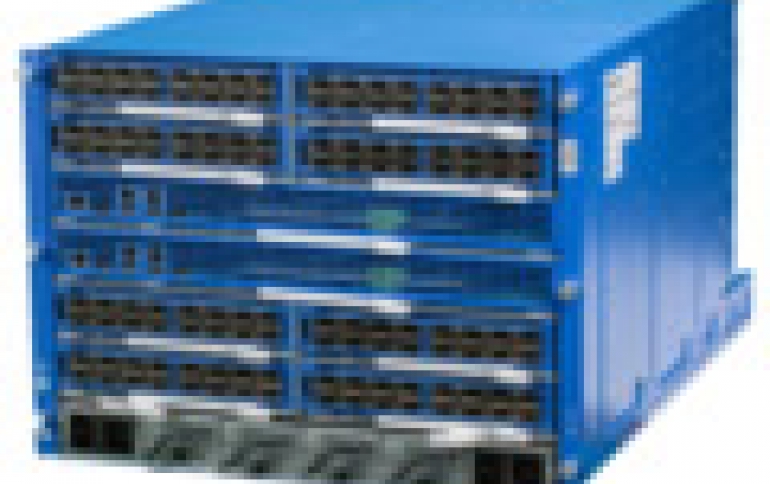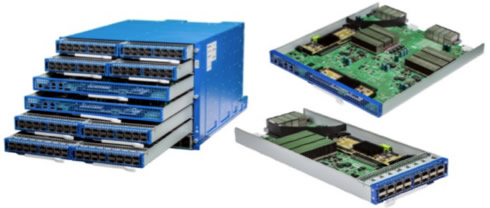
Facebook Unveils "6-pack" Networking Switch
Facebook has built an open modular switch platform. Called "6-pack," the networking-equipment system designed to replace products from companies like Cisco with flexible in large data centers. As Facebook’s infrastructure has scaled, Facebook has frequently run up against the limits of traditional networking technologies. Over the last few years thecompany has been building its own network, breaking down traditional network components and rebuilding them into modular disaggregated systems.
The new "6-pack" platform is the core of Facebook's new fabric, and it uses "Wedge" as its basic building block. Wedge is a smaller switch introduced by the company in June.
The new system is a full mesh non-blocking two-stage switch that includes 12 independent switching elements. Each independent element can switch 1.28Tbps. Facebook has two configurations. One configuration exposes 16x40GE ports to the front and 640G (16x40GE) to the back, and the other is used for aggregation and exposes all 1.28T to the back. Each element runs its own operating system on the local server and is completely independent, from the switching aspects to the low-level board control and cooling system. This means we can modify any part of the system with no system-level impact, software or hardware.
Facebook runs its networks in a split control configuration. Each switching element contains a full local control plane on a microserver that communicates with a centralized controller. This configuration, often called hybrid SDN, provides Facebook with a simple and flexible way to manage and operate the network, leading to great stability and high availability.

The only common elements in the system are the sheet metal shell, the backplanes, and the power supplies.
On the "6-pack" line card Facebook leveraged all the "Wedge" development efforts (hardware and software) and added the backside 640Gbps Ethernet-based interconnect. The line card has an integrated switching ASIC, a microserver, and a server support logic to make it completely independent.
The fabric card is a combination of two line cards facing the back of the system. It creates the full mesh locally on the fabric card, which in turn enables a very simple backplane design. For convenience, the fabric card also aggregates the out-of-band management network, exposing an external interface for all line cards and fabrics.
With "6-pack," Facebook has created an architecture that enables the comapny to build any size switch using simple set of common building blocks.
"6-pack" is already in production testing, alongside "Wedge" and "FBOSS." Facebook plans to propose the "6-pack" design as a contribution to the Open Compute Project, which encourages multiple companies to work together to design lower-cost systems. Other Open Compute members include Microsoft Corp. and International Business Machines.





















